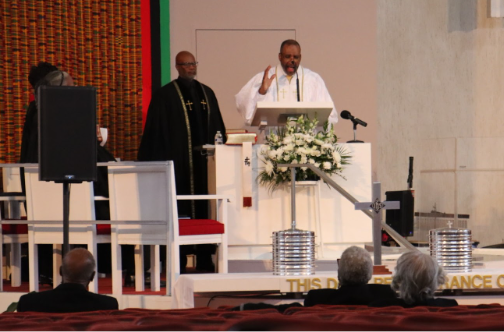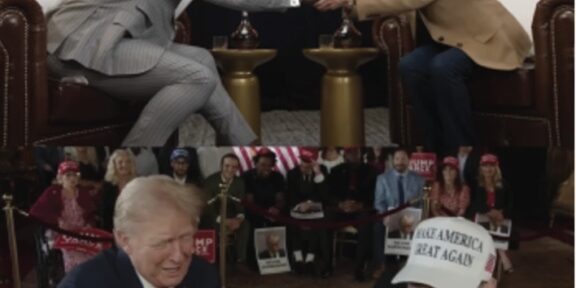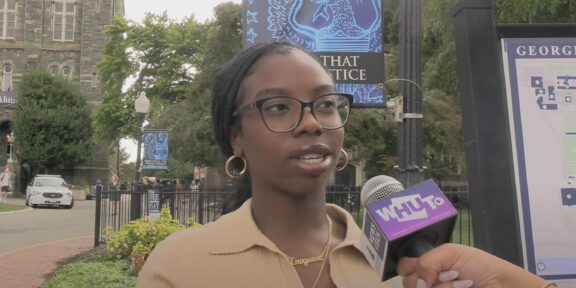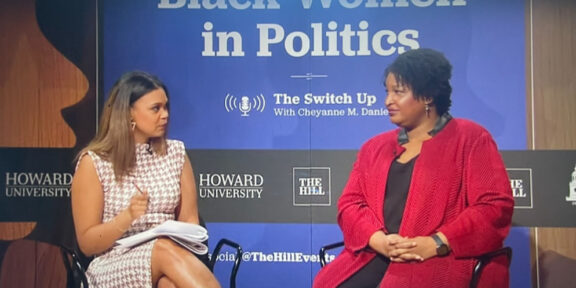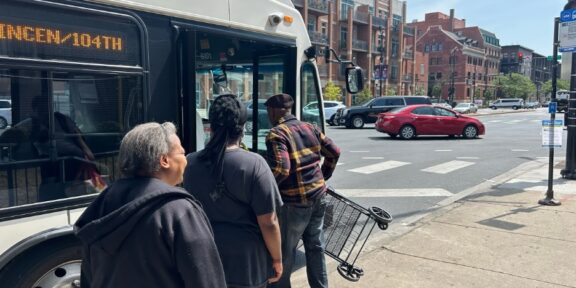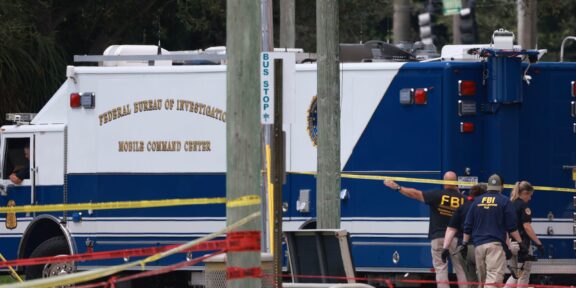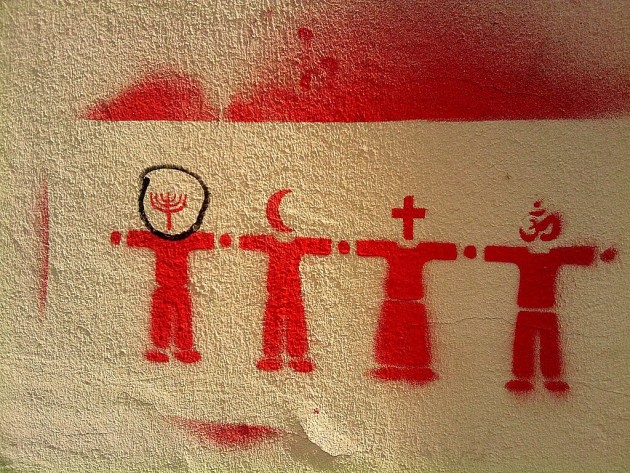By Melanie Jones and Jada White
Howard University News Service
WASHINGTON — In the final 72 hours leading up to today’s presidential election, Black churches nationwide called their communities to the ballot box, emphasizing the power of political engagement as they have for decades.
This year, the pre-election sermons touched on pressing issues such as housing, education and justice, with church leaders urging their congregations to get involved.
In many of D.C.’s Black churches, the call to vote is rooted in a legacy of urging congregants to continue the fight for representation and policy change.
Faith and activism intertwine at Nineteenth Street Baptist Church in Northwest Washington.
Recognized as the first Black church in the District, its history of activism spans 185 years.
With notable members like Carter G. Woodson and Jesse Jackson and visits from former President Barack Obama, Nineteenth Street’s leadership and congregation have been servants of the Lord and the law.
The Rev. Edward Turner, the associate pastor of the church, reflects on Nineteenth Street’s legacy: “We stand on the shoulders of those who went before us; it’s our responsibility as people of God and as African Americans to recognize our duty to vote.”
Turner frames voting not only as a civic duty but also as an extension of the church’s mission to uplift its community.
As a 501(c)(3) organization, the church cannot endorse specific candidates, so their encouragement to vote is rooted in faith rather than politics.
“We do believe our faith informs our decisions,” Turner said. “When we look at different politicians, we look at what their values are, what they’re doing for the community, and how we, as people, are continuing to benefit.”
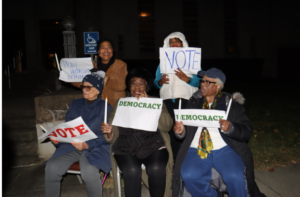
For Nineteenth Street’s members, voting runs deep in the legacies of the church and within their personal convictions.
For example, Deaconess Deborah Lewis Thornton believes voting is more than a right and that “democracy is key.”
The former Republican is not concerned about identity in politics within the church.
“Call us Republican or Democrat. Right now, I’m independent, but it doesn’t matter,” Thornton said. “We have to stand up for what values we hold near and dear to what makes our life the full complement of what God expects of us.”
Then, there is Patricia Thomas, a church member for more than 50 years who grew up when Black rights were more heavily restricted.
Like Thornton, Thomas views voting as an obligation and a badge of honor.
“When you vote, you have ownership,” she said.
Thomas remembers the struggles her community faced, like acquiring the right to vote, which drives her to support her congregation in civic engagement.
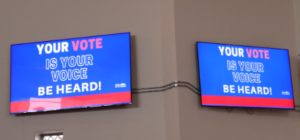
“We [the church] know we have to be careful of our status,” she said, “but it does not say that we cannot provide information. Information is power. I believe that wholeheartedly.”
Thomas believes that Nineteenth Street has consistently been at the forefront of education and civic engagement, and its impact has rippled throughout the community, gaining attention from many elected officials throughout its history.
Candidates recognize the political influence of Black churches every election year.
As a show of respect for the churches’ roles in mobilizing the Black vote, presidential candidate Kamala Harris visited Black churches in Philadelphia and Detroit just days before the last election, emphasizing the importance of connecting with these congregations directly.
“It is in and within our power to fulfill the promise of America… A power the Black church has understood and used for generations,” Harris said.
On the cusp of Election Day, D.C.’s oldest Black church emphasizes the value of voting as an act of faith and education.
“One of the things we’ll continue to do is be active in the community, encouraging people to engage in social activities, particularly social gospel,” Turner said.
In this election season, the messages from Nineteenth Street Baptist Church maintain a belief that Black churches have held for generations: Voting is an expression of faith, community engagement and ownership.
Melanie Jones and Jada White are HU News Service Reporters

